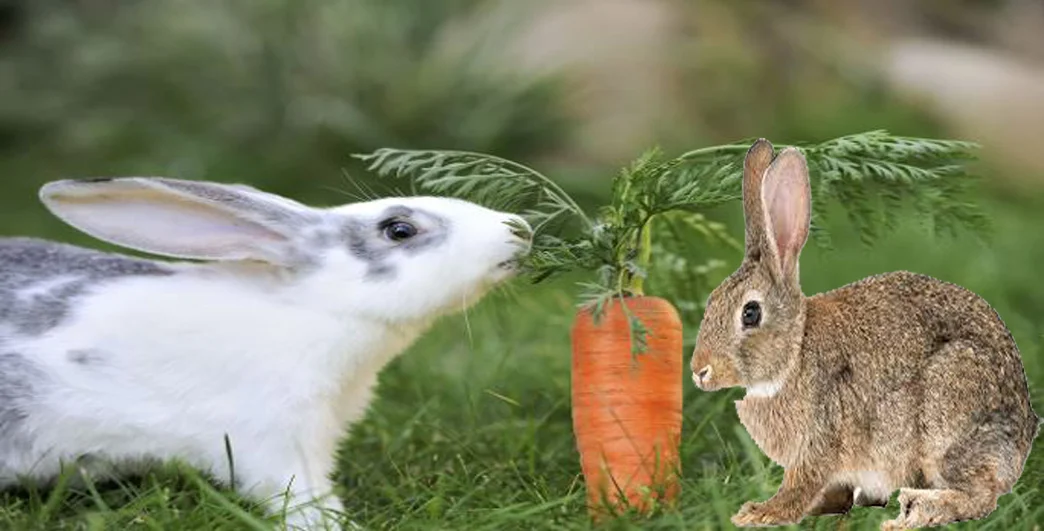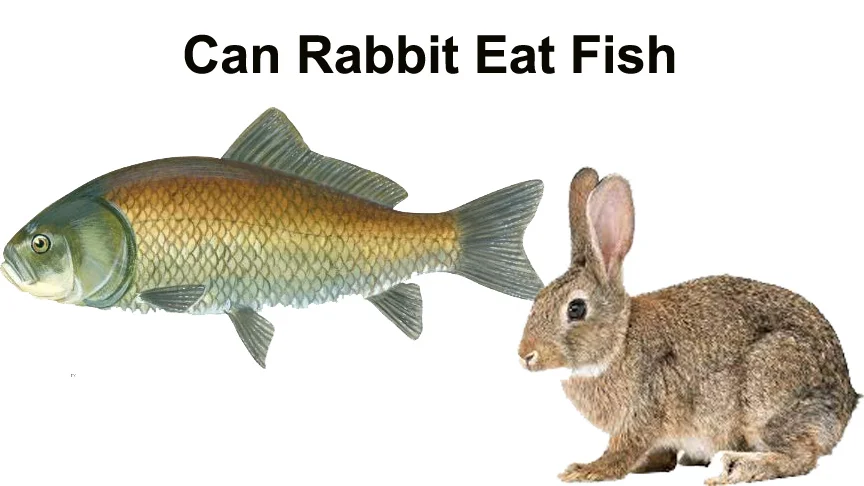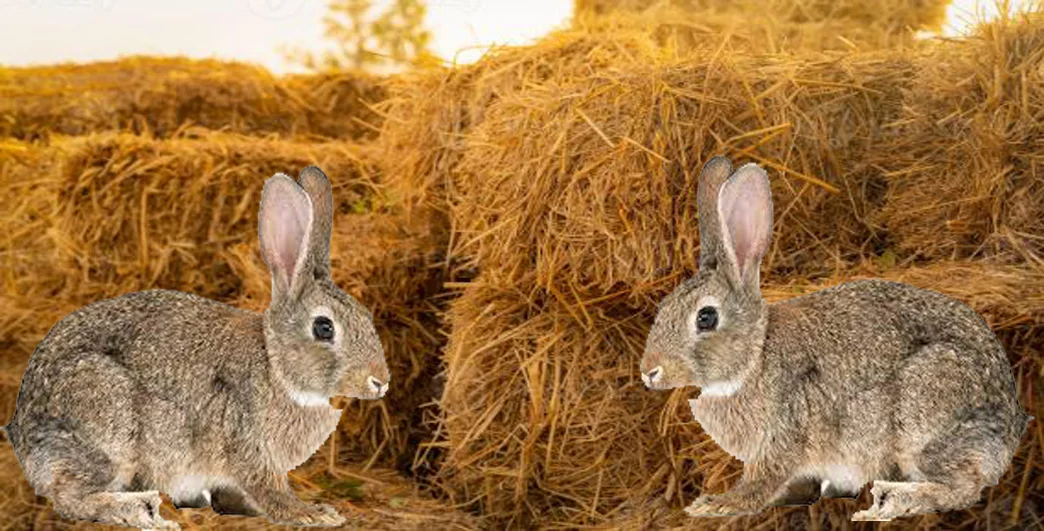As a veterinarian, one of the most important aspects of caring for rabbits is providing them with a well-balanced and nutritious diet. Choosing the best rabbit food is crucial for their overall health and well-being. In this article, we will explore the key considerations for selecting the right rabbit food and provide you with valuable insights into meeting your furry friend’s nutritional needs.
Best Rabbit Food – Bunny’s Health 2023
Rabbits are herbivores with a unique digestive system that requires a high-fiber diet. They have specific nutritional requirements that must be met to ensure their well-being. A balanced rabbit diet should consist of hay, pellets, fresh vegetables, fruits, and water.
Essential Nutrients for Rabbits
Rabbits need a diet that is rich in fiber, protein, vitamins, and minerals. Fiber is crucial for maintaining a healthy digestive system and preventing gastrointestinal issues. High-quality pellets formulated specifically for rabbits can provide essential nutrients, but they should not be the sole source of nutrition.
Choosing the Right Pellet Food for Bunny
When selecting pellets for your rabbit, opt for brands that prioritize high-fiber content and natural ingredients. Avoid products that contain excessive amounts of fillers or added sugars. It’s essential to check the label for the Association of American Feed Control Officials (AAFCO) statement, indicating that the food meets the minimum nutritional requirements.
The Importance of Hay in a Rabbit’s Diet
Hay is a staple in a rabbit’s diet and should be available at all times. Timothy hay is an excellent choice due to its high fiber content. It aids in maintaining healthy teeth and optimal digestive function. Introduce a variety of hays, such as orchard grass or meadow grass, to provide enrichment and prevent boredom.
Fresh Vegetables and Fruits for Rabbits
Fresh vegetables and fruits are essential for providing rabbits with additional nutrients and variety in their diet. Leafy greens like kale, spinach, and romaine lettuce are excellent choices. Fruits should be given in moderation due to their high sugar content. Offer small amounts of treats like apple slices or berries as occasional rewards.
Water and Hydration
Clean, fresh water should always be available for your rabbit. Ensure that the water is changed daily to prevent contamination. Use a water bottle with a sipper tube to prevent spillage and keep the water clean. Monitor your rabbit’s water intake, as a decrease in consumption may indicate an underlying health issue.
Avoiding Harmful Foods
Certain foods are toxic to rabbits and should be strictly avoided. These include chocolate, caffeine, onions, garlic, avocado, and sugary or processed foods. Educate yourself about potential food hazards to keep your rabbit safe and healthy.
Feeding Schedule for Rabbits
Establishing a consistent feeding schedule is essential for maintaining your rabbit’s health and ensuring they receive proper nutrition. Here’s a recommended feeding schedule for rabbits:
Morning: Start the day by providing fresh water in a clean water bottle. Rabbits should have access to water at all times.
Hay Time: Offer a generous amount of fresh hay, such as Timothy hay, in the morning. Hay should make up the majority of your rabbit’s diet and should be available throughout the day.
Pellet Portion: In the morning, provide a measured portion of high-quality rabbit pellets. Consult the packaging for the recommended daily amount based on your rabbit’s weight.
Fresh Vegetables: During the day, offer a variety of fresh vegetables, washed and chopped into appropriate sizes. Leafy greens like kale, spinach, and romaine lettuce are excellent choices. Aim for a mix of at least three different vegetables.
Afternoon Snack: In the afternoon, provide a small portion of rabbit-safe fruits as a snack. This can include apple slices, berries, or a slice of banana. Remember to keep fruit portions small due to their high sugar content.
Evening Meal: In the evening, refill the hay supply to ensure your rabbit has plenty to munch on during the night. Remember to remove any uneaten vegetables or fruits from earlier in the day.
Bedtime Treat: Before bedtime, offer a small treat or a few Timothy hay pellets as a bedtime snack. This can serve as a reward for good behavior and also encourage healthy dental wear.
Note: It’s important to monitor your rabbit’s weight and adjust the feeding portions accordingly. Consult with your veterinarian to determine the appropriate amount of pellets and vegetables for your specific rabbit based on their age, weight, and overall health.
Remember, rabbits have sensitive digestive systems, so any changes to their diet should be introduced gradually to prevent gastrointestinal upset. Providing fresh, clean water and monitoring their food intake will help keep your rabbit healthy and happy.
Monitoring Your Rabbit’s Weight
Regularly monitoring your rabbit’s weight is an important part of ensuring their overall health and well-being. Here are a few key points to keep in mind when it comes to monitoring your rabbit’s weight:
Weighing Frequency: It’s recommended to weigh your rabbit at least once a month to track any changes in weight. This can be done using a small pet scale or by visiting your veterinarian.
Ideal Weight Range: Every rabbit has a unique ideal weight range based on their breed, age, and overall health. Consult with your veterinarian to determine the ideal weight range for your specific rabbit.
Consistency is Key: Weigh your rabbit at the same time of day and under similar conditions each time to maintain consistency. This helps in accurately tracking weight changes over time.
Weight Gain: Sudden or excessive weight gain can be a sign of overfeeding or a potential health issue. Adjust the feeding portions and consult your veterinarian if you notice significant weight gain.
Weight Loss: Unexplained weight loss or a consistent downward trend in weight may indicate underlying health problems or inadequate nutrition. Seek veterinary attention if your rabbit is losing weight without an obvious reason.
Diet and Exercise: Ensure your rabbit is receiving a balanced diet, including hay, pellets, fresh vegetables, and occasional fruit treats. Encourage regular exercise by providing ample space for them to hop and play.
Behavioral Observation: Monitor your rabbit’s behavior and appetite alongside weight changes. A sudden decrease in appetite or lethargy could be indications of health concerns.
Common Dietary Issues in Rabbits
Rabbits are prone to certain dietary issues that can impact their health. Here are some common dietary issues to be aware of when caring for your rabbit:
Gastrointestinal Stasis: Gastrointestinal stasis, also known as “GI stasis,” is a condition where the digestive system slows down or stops working properly. It can be caused by a diet low in fiber or insufficient water intake. Signs include reduced appetite, decreased fecal output, and lethargy.
Obesity: Overfeeding or providing an imbalanced diet can lead to obesity in rabbits. Obesity puts excessive strain on their joints and organs, increasing the risk of other health issues. Monitor your rabbit’s weight and adjust their diet accordingly to prevent obesity.
Dental Problems: Rabbits have continuously growing teeth, and a lack of proper dental wear can result in dental problems. Feeding a diet rich in fiber, such as hay, promotes natural teeth wear. Dental issues can cause pain, decreased appetite, and difficulty eating.
Diarrhea: Diarrhea in rabbits can occur due to sudden changes in diet, bacterial infections, or ingestion of harmful foods. It can lead to dehydration and electrolyte imbalances. If your rabbit experiences persistent diarrhea, seek veterinary attention.
Bladder Stones: Bladder stones can develop when rabbits consume a diet high in calcium or have an imbalance in their urinary system. Symptoms include difficulty urinating, blood in the urine, and reduced appetite. Treatment may involve dietary adjustments and medical intervention.
Selective Feeding: Rabbits may exhibit selective feeding behavior, where they only consume certain parts of their diet and neglect others. This can lead to nutritional imbalances. Providing a variety of fresh vegetables and hays can help encourage a balanced diet.
Allergies and Sensitivities: Some rabbits may have allergies or sensitivities to certain foods, resulting in digestive upset or skin issues. Introduce new foods gradually and monitor your rabbit’s response. If you notice any adverse reactions, consult your veterinarian.
Supplements for Rabbit Health
While a balanced diet is the foundation of a healthy rabbit’s nutrition, there are certain supplements that can support their overall well-being. Here are some common supplements recommended for rabbit health:
Vitamin C: Rabbits, unlike humans, can produce their own vitamin C. However, in certain situations, such as illness or stress, additional vitamin C supplementation may be beneficial. Consult with your veterinarian for appropriate dosage and administration.
Probiotics: Probiotics are beneficial bacteria that promote healthy gut flora. They can aid in digestion and prevent gastrointestinal issues. Probiotic supplements specifically formulated for rabbits can be beneficial, especially during antibiotic treatments or periods of digestive upset.
Joint Supplements: Older rabbits or those with joint issues may benefit from joint supplements containing glucosamine and chondroitin. These supplements support joint health and can help alleviate discomfort associated with arthritis or mobility issues.
Digestive Enzymes: Digestive enzymes can aid in the breakdown and absorption of nutrients in rabbits with compromised digestion. They are especially useful for rabbits recovering from gastrointestinal stasis or other digestive disorders. Consult your veterinarian for guidance on appropriate enzyme supplements.
Herbal Supplements: Certain herbs, such as chamomile or calendula, have soothing properties and can support overall health in rabbits. However, it’s important to consult with a veterinarian knowledgeable in herbal medicine for safe and appropriate herbal supplements.
Rabbit Food Storage and Handling
Proper storage and handling of rabbit food are important to maintain its freshness and nutritional quality. Here are some guidelines to follow:
Store in a Cool, Dry Place: Keep your rabbit’s food in a cool, dry area away from direct sunlight. Moisture and heat can lead to mold growth and nutrient degradation.
Use Airtight Containers: Transfer the rabbit food into airtight containers to prevent exposure to air, moisture, and pests. This helps maintain freshness and prevents contamination.
Check Expiry Dates: Always check the expiry dates on the rabbit food packaging before purchasing and using it. Using expired food can be harmful to your rabbit’s health.
Avoid Cross-Contamination: Ensure that the storage containers and scoops used for rabbit food are clean and free from any residues or contaminants. Avoid mixing different batches of food together.
Rotate Food Supplies: Practice a “first in, first out” approach. Use older food before opening a new bag to prevent food from sitting for too long and potentially spoiling.
Monitor for Signs of Spoilage: Regularly inspect the rabbit food for any signs of mold, unusual odors, or insect infestations. If you notice any abnormalities, discard the food immediately and replace it with a fresh batch.
Wash Food Dishes and Water Bottles: Clean your rabbit’s food dishes, water bottles, and any other feeding equipment regularly to prevent the growth of bacteria. Use mild detergent and rinse thoroughly.
Grooming and Dental Care for Rabbits
Proper grooming and dental care are essential for keeping your rabbit healthy and happy. Here are some key points to consider:
Brushing: Regularly brush your rabbit’s fur to remove loose hair and prevent matting. This helps prevent hairballs and keeps their coat in good condition. Use a soft brush or grooming mitt designed for rabbits.
Nail Trimming: Trim your rabbit’s nails regularly to prevent overgrowth and discomfort. Use a pair of small, animal-specific nail clippers and be cautious not to cut into the quick (the pink part inside the nail). If unsure, seek guidance from a veterinarian or a professional groomer.
Ear Cleaning: Inspect your rabbit’s ears regularly for any signs of dirt, wax buildup, or infection. If necessary, gently clean the outer ear with a damp cloth. Avoid inserting anything into the ear canal, as this can cause injury.
Dental Health: Rabbits’ teeth continuously grow, so dental care is crucial. Provide plenty of chew toys, such as untreated wooden blocks or apple branches, to help them wear down their teeth naturally. Regular veterinary check-ups can ensure proper dental health.
Monitor Teeth Alignment: Check your rabbit’s teeth for signs of malocclusion (misalignment). Malocclusion can cause pain, difficulty eating, and dental problems. If you suspect any issues, consult a veterinarian experienced in rabbit dentistry.
Provide Chewable Items: Along with chew toys, offer hay and fresh vegetables to encourage chewing. The fibrous texture of hay promotes dental wear and helps maintain oral health.
Professional Grooming: Some long-haired rabbit breeds may require professional grooming to prevent matting and maintain their coat’s health. Consult with a professional groomer experienced in handling rabbits if needed.
Understanding Rabbit Nutrition
Proper nutrition is vital for maintaining the health and well-being of rabbits. Here are some key points to understand about rabbit nutrition:
Hay is Essential: High-quality hay should make up the majority of a rabbit’s diet. It provides the necessary fiber for healthy digestion, wears down their continuously growing teeth, and prevents gastrointestinal issues. Offer a variety of hays, such as timothy, orchard grass, or meadow grass.
Pellets in Moderation: Pellets formulated specifically for rabbits can supplement their diet. However, they should be fed in moderation to prevent obesity. Choose pellets that are high in fiber, low in protein, and free from added sugars or artificial additives.
Fresh Vegetables: Fresh vegetables provide essential vitamins and minerals to rabbits. Introduce a variety of vegetables gradually, starting with leafy greens like romaine lettuce, kale, or cilantro. Avoid feeding excessive amounts of high-sugar vegetables, such as carrots or fruits.
Limited Fruit Treats: Fruits should be given as occasional treats due to their high sugar content. Offer small amounts of rabbit-safe fruits like apples, berries, or melons. Remove any uneaten fruit to avoid spoilage.
Water Availability: Ensure fresh, clean water is available at all times. Provide water in a drip-feed bottle or a heavy ceramic bowl to prevent tipping.
Avoid Harmful Foods: Some foods can be harmful to rabbits and should be avoided. These include chocolate, caffeine, onions, garlic, nuts, seeds, and foods high in carbohydrates or processed sugars.
Consult a Veterinarian: Consult a veterinarian experienced in rabbit care to determine the specific nutritional needs of your rabbit. They can guide you on portion sizes, dietary adjustments, and any necessary supplements.
Frequently Asked Questions
1. How much hay should I give my rabbit each day?
Aim to provide an unlimited supply of fresh hay, allowing your rabbit to eat as much as they need. Ensure the hay is clean, dry, and free from dust or mold.
2. Can I feed my rabbit commercial rabbit treats?
It’s best to avoid commercial rabbit treats that are high in sugar and low in nutritional value. Instead, opt for small portions of fresh fruits or Timothy hay-based treats.
3. Can rabbits eat vegetables every day?
Yes, rabbits can eat vegetables every day. Offer a variety of vegetables to ensure they receive a range of nutrients. Remember to introduce new vegetables gradually to prevent digestive issues.
4. How often should I change my rabbit’s water?
Water should be changed daily to ensure freshness and prevent bacterial growth. Clean the water bottle or bowl regularly to maintain proper hygiene.
5. When should I consult a veterinarian about my rabbit’s diet?
If you have concerns about your rabbit’s diet, weight, or appetite, it’s best to consult a veterinarian who specializes in small animals. They can provide personalized advice based on your rabbit’s specific needs and health conditions.

I am a veterinarian and owner of 10 rabbits. I am serving as a veterinarian for 17 years, All the latest and most helpful information about their food and the pros and cons of feed and Healthy diet benefits. I educate pets, about proper animal care, disease prevention, and responsible pet ownership, perform surgeries, administer vaccinations, prescribe medications tailored to the specific needs of each animal, diagnose, and treat illnesses, and injuries in animals and providing medical care to ensure their well-being.




One thought on “Best Rabbit Food Research 2023 A Veterinarian’s Guide Bunny’s Nutrition”